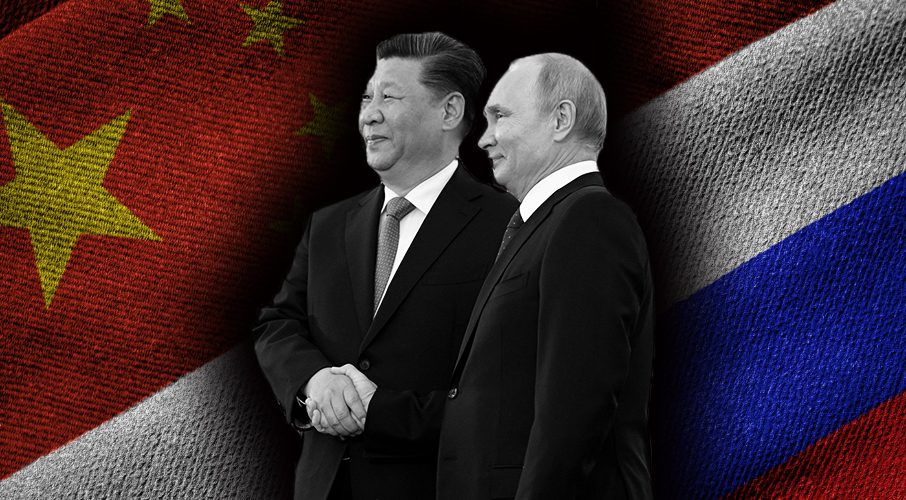This article originally appeared in the National Post.
By Jonathan Berkshire Miller and Balkan Devlen, July 10, 2023
At the NATO summit this week in Vilnius, Lithuania, the alliance’s attention first and foremost will be on supporting Ukraine. As we argued last week, the alliance should recognize that a rapid integration of Ukraine into NATO is not a form of charity but enlightened self-interest.
Yet while Russia’s brutal war has spurred the alliance to new levels of co-ordination and unity, there is another challenge further afield that equally demands attention. China’s increasingly disruptive role globally has rightly caught the attention of NATO, which for the first time labelled the behaviour of the People’s Republic of China (PRC) as a “systemic challenge” to Euro-Atlantic security in its strategic concept paper released ahead of last year’s summit.
Indeed, before Russia’s renewed aggression in Ukraine in February 2022, there was a defined push from many NATO member states — led by the United States — to incorporate a greater focus both on China and more broadly on the Indo-Pacific region.
Russia’s illegal war in Ukraine has done nothing to take away this focus on Asia. If anything, the war has magnified the stakes at play for NATO to integrate more deeply with liberal democratic partners in the region. This week in Vilnius, it is expected that the leaders of the so-called “Asia-Pacific 4 (AP4)” — Japan, South Korea, Australia and New Zealand — will attend the summit as guests of the secretary general. This would follow up on a similar high-level inaugural presence at last year’s NATO summit in Madrid.
But it’s not just symbolic. In the aftermath of Russia’s invasion, all four AP4 states moved in unison with NATO allies to place economic sanctions on Russia. This was done despite particularly challenging diplomatic and economic considerations, especially for the large Northeast Asian economies, Japan and South Korea, that are close neighbours to Russia. The rationale however was simple. America’s key allies in Asia recognize that the egregious Russian challenge to the rules-based order could not stand or be met with short-sighted euphemistic diplomatic wordsmithing.
The more consequential reason for their support however is the social contract AP4 states have entered with transatlantic partners. Effectively, there is an implicit expectation that, should there be a contingency or conflict in the Indo-Pacific region because of China’s growing assertiveness, European states also need to stand with their Asian partners.
This leads back to a fundamental area of consensus between the AP4 and NATO — the convergence of threats to the rule of law, freedom of navigation and international norms is at stake in both theatres. While Beijing and Moscow have several areas of mistrust and disagreement, there is no denying that their alignment is growing and is firmly premised on a desire to undercut and erode an international order that they view as anathematic to their interests. This “friendship without limits” has real security concerns that should keep NATO’s attention on the direct interconnections between the transatlantic and Indo-Pacific.
Moreover, the challenges China poses alone are sufficient to alert NATO’s attention. This is not to imply that NATO intends — or should intend — to expand the alliance to the Indo-Pacific to combat China. These arguments are non-starters that form the backbone of propaganda and disinformation efforts propagated by Moscow and Beijing. However, as we are seeing on a range of trans-national challenges — from cybersecurity, critical minerals and technology to coercive tactics in the maritime domain — China poses fundamental challenges to the open international order that NATO states have equities to defend.
What should NATO do about it? First, there should be a more focused and united effort to court the AP4 grouping and ensure that momentum is not lost in the coming years. There have been some cracks in the surface recently with some member states showing discomfort with the increasing focus on China, worrying it will lead to mission creep for the alliance and take away attention from Russia’s threat. More worryingly, others in Europe are stubbornly unwilling to confront the reality of a potential economic cleavage with the Chinese economy in a future contingency, over Taiwan or elsewhere.
It’s time for alliance members to remain eyes wide-open on the challenge China poses to their interests and values. This is especially true for Canada, which released an Indo-Pacific strategy last November highlighting concern about China as a “disruptive actor.” As an Indo-Pacific and transatlantic nation, Ottawa should be one of the consistent voices within NATO to promote the alliance’s greater clarity and attention to the challenges posed by Beijing.
Second, NATO should move the discussion forward with concrete and specific dialogues with Indo-Pacific partners on the most identifiable shared threats that China poses to both theatres. Areas could include malicious cyber behaviour, destabilizing activities in the maritime domain, activities to challenge norms in space, and the role of Beijing’s leveraging of economic and trade relationships for geopolitical gain.
Some NATO members may not want to entertain the idea of confronting Chinese threats while their hands are full with Russia, but kicking the can down the road and avoiding the issue will only lead to more stress and pain for the alliance in the long run. The best remedy for a potential future crisis is preparation.
Jonathan Berkshire Miller is Senior Fellow and the Director of Foreign Affairs, National Defence, and National Security at the Macdonald-Laurier Institute. Balkan Devlen is Senior Fellow and the Director of the Transatlantic Program at the Macdonald-Laurier Institute.






